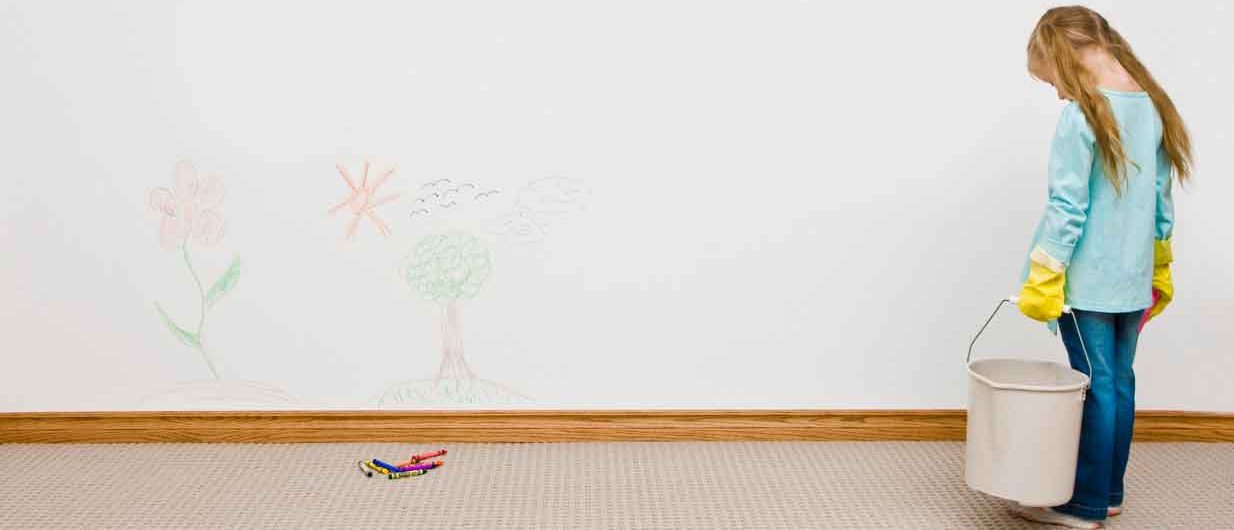How Not to Give Your Child Guilt

Help your child release guilt and forge a healthy path forward.
Kids who constantly apologize for seemingly minor offenses, say they’re “bad kids,” or blame themselves for things that aren’t their fault, may be at risk for later depression.
As part of a 12-year study, researchers reviewed brain scans of 145 school-aged children, looking closely at the anterior insula, a part of the brain that regulates perception, self-awareness, and emotion. They also asked caregivers about kids’ proclivity for saying “sorry” or showing signs of feeling guilty. Turns out, feelings of extreme guilt were linked with smaller anterior insulas.
YOU MIGHT ALSO LIKE: What Science Says About Spanking
“That smaller anterior insula volume is predictive of internalizing disorders, including anxiety and depression,” says study author Joan Luby, PhD, director of the Early Emotional Development Program at Washington University School of Medicine. In fact, the study is one of the first to link feelings of excessive guilt in childhood to physical changes in the brain.
The chicken-and-egg question, of course, is whether guilt during childhood alters brain development, or whether a child who is biologically wired to develop a mental disorder displays signs of excessive guilt. In the real world though, it doesn’t matter. Instead, say experts, parents should focus on damage control.
Shaping a child’s guilt barometer
While a growing body of research suggests excessive guilt during early childhood could be a warning sign for long-term self-sabotage, it doesn’t mean an apologetic kid is doomed to mental misfortune.
“Guilt is not a bad thing,” says Eileen Kennedy-Moore, PhD, author and creator of a new video/audio series called Raising Emotionally and Socially Healthy Kids. “Along with empathy, it’s part of the emotional foundation that inspires moral action.” In fact, toddlers who show signs of guilt are less likely to exhibit behavior problems five years later. To be constructive though, guilt needs to come in tolerable doses.
As a parent, how you frame disciplinary actions — or even how you react to everyday accidents — can help shape your child’s guilt barometer in positive ways. So instead of playing prosecuting attorney when you’re angry with your children — Did you do this?! WHY did you do this? You’re being such a bad boy. — help children identify a path forward.
“If they’ve hurt a playmate, sibling, or even you, ask, ‘What can you do to help the person you hurt feel better?’” suggests Kennedy. “If your child can't come up with anything, suggest saying, ‘I’m sorry,’ and performing an act of kindness. This can repair the relationship and get your child back on the kind path.”
Managing uncomfortable emotions
Experts agree it’s normal and healthy for kids to feel guilty when they do something wrong. Of course, when your child is feeling angry, frustrated, or disappointed, a parent’s natural response is to make the pain stop — to distract the child from negative emotions. “We’re suggesting parents sit with it instead,” says Luby. “Help the child identify and verbalize negative emotions and also learn how to regulate them.”
With your help, children can learn coping mechanisms, something as simple as counting to 10 when they’re angry or upset, or breathing deeply so they don’t blow a gasket. Over time, they may even learn to step back when another child takes their toy rather than wildly react. Then, when they engage in blatant egregious acts — hitting, biting, or spiting at another child or (gasp) an adult — help them focus on acts of kindness to make amends rather than shaming them.
As parents, it’s our job to model appropriate responses to mistakes. So a response to spilled milk, for example, might be, “Oops! Oh, well, that’s okay. Let’s clean it up. Maybe we’ll make the floor cleaner than it was before the spill.” That way instead of crying over spilled milk, kids learn to celebrate the mishap’s silver lining.
Updated:
February 27, 2020
Reviewed By:
Christopher Nystuen, MD, MBA